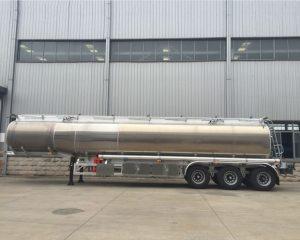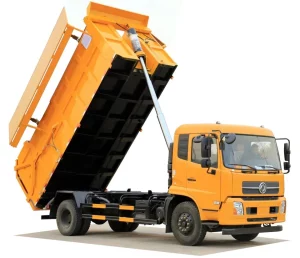Monday to Saturday - 8:00 -17:30
Septic Tank Waste Management: A Comprehensive Guide
Septic tank waste management is essential for homeowners relying on septic systems for wastewater treatment. Understanding how these systems work and the importance of maintaining them can lead to better sanitation, environmental protection, and cost savings. In this article, we will explore the intricacies of septic tank waste management, including system components, maintenance tips, common issues, and more.
Understanding Septic Systems
What is a Septic System?
A septic system is an underground wastewater treatment system that provides an alternative to centralized sewer systems. It typically consists of a septic tank and a drain field. Wastewater flows from homes into the tank, where solids settle and are decomposed by bacteria.
Components of a Septic System
| Component | Function |
|---|---|
| Septic Tank | Holds and partially treats wastewater by separating solids from liquids. |
| Drain Field | Disperses treated water into the soil, which further filters and purifies it. |
| Pipes | Transport wastewater from the home to the septic tank and from the tank to the drain field. |
Importance of Proper Waste Management
Why Manage Septic Waste?
Improper management of septic waste can lead to severe environmental issues, public health risks, and costly repairs. Regular maintenance helps prevent system failures, groundwater contamination, and unpleasant odors.
Environmental Impact
Septic tanks that are not properly maintained can leak harmful bacteria and nutrients into the ground and water sources. This can lead to the degradation of local ecosystems, harm aquatic life, and contribute to water pollution.
Signs Your Septic System Needs Attention
Common Indicators of Problems
Identifying issues early can save you hassle and expense. Here are some signs that your septic system may need attention:
- Foul odors near the tank or drain field
- Sewage backup in sinks or toilets
- Pooling water over the drain field
- Slow draining fixtures
- Greener-than-usual grass or lush vegetation over the drain field
Regular Maintenance Practices
How Often Should You Inspect Your Septic System?
It is recommended to have your septic system inspected every 1 to 3 years, depending on the tank size and household usage.
Pumping the Septic Tank
Septic tanks need to be pumped every 3 to 5 years to remove sludge buildup. Hiring a professional service for pumping is typically the best option.
Steps to Pump Your Septic Tank
- Locate the septic tank access lid.
- Remove the lid carefully.
- Insert the vacuum hose into the tank and pump out the contents.
- Replace the lid securely after the process is complete.
Utilizing ADDITIVES
Some homeowners may consider using additives designed to enhance bacteria activity in septic tanks. However, it is crucial to choose products approved for septic systems.
Common Myths About Septic Systems
Dispelling Misconceptions
- Myth: Additives can replace pumping.
- Fact: Additives are not a substitute for regular pumping and maintenance.
- Myth: Septic tanks are “set it and forget it.”
- Fact: Regular maintenance is crucial to prevent failures.
Potential Problems and Solutions
Clogs and Blockages
Clogs can occur due to excessive solids entering the system. Solutions include regular pumping and avoiding flushing non-biodegradable items.
Drain Field Issues
If water is pooling over the drain field, it may be saturated or need repairs. Redirecting water runoff and ensuring proper drainage can help.
Septic System Failures
Signs of failure include sewage backups and strong odors. In such cases, an inspection and possible replacement of the system may be necessary.
Cost of Septic Tank Waste Management
Factors Influencing Cost
The cost of septic tank waste management can vary based on several factors such as tank size, location, frequency of pumping, and repairs needed. Below is a simplified table of estimated costs:
| Service | Estimated Cost |
|---|---|
| Septic Tank Pumping | $300 – $600 |
| Inspection | $100 – $200 |
| Tank Replacement | $3,000 – $7,000 |
Best Practices for Homeowners
Proper Use of Water
Minimizing water usage helps reduce the volume of waste in the septic system. Simple steps include:
- Fixing leaks promptly
- Installing low-flow toilets and fixtures
- Spreading out laundry and dishwashing
What to Avoid
To prevent septic system issues, avoid the following:
- Flushing non-biodegradable products.
- Using harsh chemicals that kill beneficial bacteria.
- Driving over the drain field with vehicles or heavy equipment.
FAQs about Septic Tank Waste Management
1. How long does a septic tank last?
A well-maintained septic tank can last for 20-30 years, but its lifespan can be significantly reduced without proper care.
2. Can I plant over my drain field?
Yes, but only shallow-rooted plants are recommended. Deep roots can damage the system.
3. What should I do if my septic tank is backing up?
If you experience a backup, stop using water and contact a professional for an immediate inspection.
4. What are the signs of a failing septic system?
Signs include foul odors, pooling water, and slow drainage in your home.
5. Are septic additives necessary?
While some people use them, additives are not generally necessary if the system is well maintained.
6. How do I find a reputable septic service provider?
Look for certified professionals with good reviews, and ask for references to ensure quality service.








